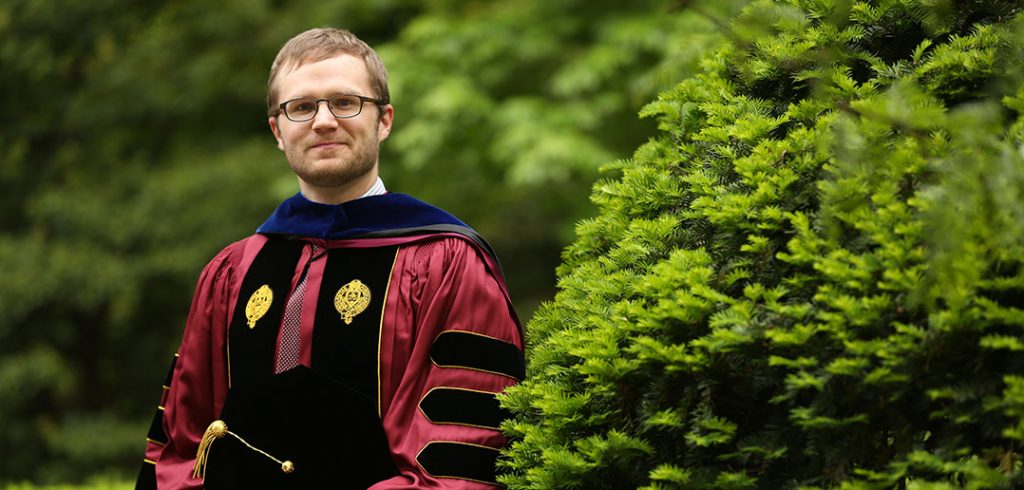Joseph Vukov, GSAS ’16, is intrigued by recent scientific advancements in the study of the brain. But he’s not a neuroscientist; he’s a philosopher.
Vukov, who graduated from Fordham this past Saturday with a PhD in philosophy, has examined the ethical questions surrounding the intersection of theory of mind (the capacity to attribute mental states to yourself and others) and neuroscience. It’s a field that has relevance to many discoveries being made today. “For example,” he says, “there are now certain treatments that can make your memories more or less salient, or they can even be deleted altogether.”
Researchers think these procedures could help those suffering from psychological trauma. But for Vukov, this raises significant ethical questions. “We clearly don’t want to be people who just don’t remember anything. But what are the limits? How do we set those limits? What are the ethical boundaries here? Philosophers, neuroscientists, psychologists, MDs, nurses, and lawyers should all be weighing in.”
In September, the Minnesota native will be helping students navigate these complicated questions when he returns to the Midwest to teach in Loyola University Chicago’s philosophy department. Having recently completed a study funded by the Association of Catholic Colleges and Universities that examined how graduate students relate to Fordham’s Jesuit mission, Vukov is particularly excited to be joining another Jesuit university. He will be teaching several classes in the school’s Jesuit core, as well as courses in neuroethics and healthcare ethics.
Vukov’s new assistant professor position is on the coveted tenure track. “I still can’t believe it,” he says. “I feel incredibly fortunate, and fortunate for the mentorship I received at Fordham and for the support that the faculty members and the graduate school have given me.”

